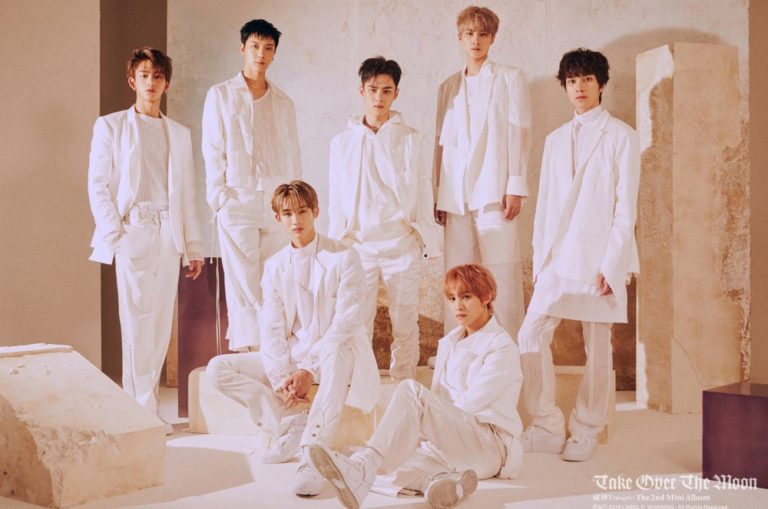 WayV: a Chinese sub-group of popular Korean boy group NCT. Credit: LABEL V
WayV: a Chinese sub-group of popular Korean boy group NCT. Credit: LABEL V
It’s a mildly terrifying phenomenon: the meteoric rise of K-Pop. Anyone with a Twitter account will have – most likely unwillingly – been subject to a few seconds of some K-Pop fancam lurking under a viral tweet, or seen some celebrity’s birthday hashtag trending. Music videos get billions of views.
Seemingly out of nowhere, it’s now nearly impossible to avoid it. When I was younger, everyone knew Psy’s “Gangnam Style”, and loved it in a borderline-ironic-yet-secretly-genuine sort of way. Now, BLACKPINK performed at Coachella; BTS popped up at the Grammys. Less high-profile Chinese-Pop may be, the two industries are institutionally identical: sharing training camps, business strategies, even “idols”.
 Lay Zhang [L] and Jackson Wang [R] are two high-profile Chinese members of K-Pop groups EXO and Got7, respectively. Credit: SM ENT; JYP ENT
Lay Zhang [L] and Jackson Wang [R] are two high-profile Chinese members of K-Pop groups EXO and Got7, respectively. Credit: SM ENT; JYP ENT
(NB: “idol” = a particular brand of young Asian entertainer, trained for years to sing, dance, act, MC, model etc.; usually a member of an “idol group”).
But the peculiar incongruity is that, despite the obvious online ubiquity of idol groups, they’re entirely absent in my real life. My friends and I don’t listen to Asian pop music; it barely touches the fringes of our popular consciousness. Perhaps we’ve aged out of it: we had One Direction. And the new middle school era pretty young things, with fun bops, fun dances and fun personalities, are Asian idols.
When I asked my younger Chinese cousin what music she liked, she – somewhat surprisingly – emphatically rejected idol pop. Her friend from boarding school, however, was a fan of one group. And she was such a fan that she’d just bought fifteen (!) copies of their recent album.
This, it seems, is the crux. The bottom-line of the idol economy. It relies on an almost fanatic obsession. More insidiously, it relies on an obsession with the person (or the public persona the idol and their management have curated) rather than just with the music. The girl who bought fifteen albums justified her purchases because she wanted to “support her boys”.
There’s no doubt it’s lucrative. Studies have shown that China’s idol market is worth $14bn USD, and ⅓ of Chinese Gen Z netizens are “willing to buy products that their idols endorsed, or the same products that their idols used”. Cultivating a zealous yet niche fanbase is also economically savvy. It might cost an agency a lot to train an idol and build a following, but after that, it’s the fandom which throws heart, soul and a vast cashflow into promoting their faves. Chinese fans of one idol rapper organized to give him a US iTunes number one, blocking Ariana Grande’s “thank u, next”; and another fanbase bought out an airplane just to celebrate their idol’s birthday. The fans of one group forgot to shower and sleep to mass stream on YouTube.
 The airplane birthday fan-project for Korean idol Sehun. Credit: @tomo_9256
The airplane birthday fan-project for Korean idol Sehun. Credit: @tomo_9256
This is far from unfamiliar in Western pop culture. From Beatlemania to Yeezys selling out in minutes to “Swifties”, “Arianators” etc. dominating Twitter alongside K-Pop stans, celebrities have long been put on a pedestal by devout worshippers. But what is more unprecedented is how institutionalized the near-cult of personality is in the Asian idol industry.
The prevalence of album bundles – where one purchase equals one ticket for a meet-and-greet lottery – is a clear symptom. As are idol survival reality shows. With limited screen-time, and one hundred competitors who’ve all undergone equivalent agency selections and training regimes, eliminations become a popularity contest of which individual has the most – or more accurately, most devoted – fans. The girl group AKB48 was conceptualised to rely on this algorithm.
And the control the fans – and their wallets – wield over an idol’s career is a double-edged sword. The dark side to benefitting from irrational levels of spending is being subject to an irrational sense of ownership and control. Recently, some hardcore fans of a popular young actor, Sean Xiao, scandalized by gay fanfiction featuring a character he played, reported fanfiction sites Archive Of Our Own and Lofter to Chinese Government censors. A mass boycott arose against Xiao, because those sites had acted as free speech and LGBT havens for many netizens.
More dangerously is that the ownership is extended over the artist as a person, and not merely enjoyment of their art. For the extreme obsessives, they seek to control “their” idols’ private lives. They can't drink, or gamble, or smoke. can’t drink, or gamble, or smoke. Or date. Entertainment agencies caution – or even outright prohibit – their investments from dating, because the “scandal” can torpedo an idol’s popularity. Two popular K-Pop stars, HyunA and E’Dawn, were unceremoniously dumped by their labels when they revealed their relationship. After all, it’s hard to sell the “boyfriend image” or the “innocent schoolgirl” or the dream that one-day-you-will-have-your-happily-ever-after-with-the-One to the fantasies of fans when actual significant others stand in the way.
There should be no harm in the enthusiasm fans feel for their faves. It shouldn’t be any more annoying than diehard sports or video game devotees. The militaristic organization and the almost self-sacrificial passion is even impressive in some dogged way. Indeed, much of the West’s revulsion felt towards Asian idols (and their stans) is underlaid by a cocktail of misogyny and xenophobia.
But sometimes, the most intense disciples should breathe and step back. At the end of the day, it’s just music. People need to calm down.
[zombify_post]


0 Comments